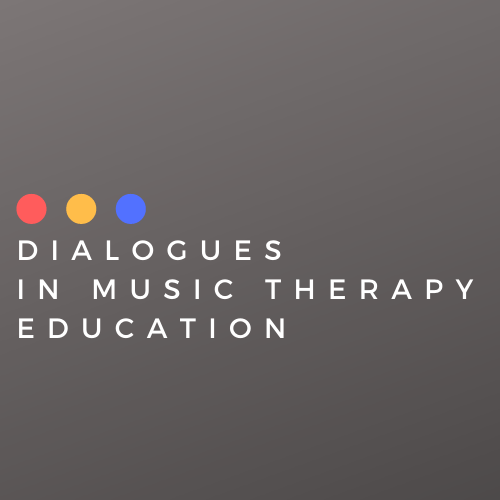From Surviving to Thriving: Creating a Viable Virtual Model of Music Therapy Internship in Private Practice During a Global Pandemic
DOI:
https://doi.org/10.18060/25608Palabras clave:
COVID-19 Pandemic, Intern Supervision, Virtual Music Therapy, Virtual SupervisionResumen
Though many music therapists pivoted to offer online clinical services during the COVID-19 pandemic, the methodology of music therapy internship sites that adapted to a virtual model of internship during this time is largely unknown. The private practice the authors work for, located in a large metropolitan area of the United States, has trained at least 11 interns using a virtual model of music therapy supervision created during the pandemic. The practice’s five internship supervisors use technology tools including Zoom, Google Drive, and Calendly as the basis for their virtual supervision program. Programming concepts for interns include online group supervision to discuss professional topics, intern social hours, intern study hall hours, and supplemental online resources for intern growth and reflection. Supervisor and intern feedback highlighted major challenges including clear communication, clinical skill development, and maintaining work-life balance during a virtual internship. The authors stress the need for vulnerable leadership and open communication in this model of internship. Advantages of a virtual model include decreased financial burden for interns, increased flexibility of programming, and increased accommodations available for interns. A partial or total online model of internship can be one strategy to meet the growing need for internship sites as the pandemic continues and society becomes increasingly technological.
Citas
American Music Therapy Association. (2021, May 7th). COVID-19 and music therapy clinical training survey to faculty and clinical supervisors/internship directors results. https://www.musictherapy.org/assets/1/7/COVID19_EdTrainingData_SurveyResults_5-2021.pdf
Brown, B. (2012, March). Brene Brown: Listening to shame [Video]. TED Conferences. https://www.ted.com/talks/brene_brown_listening_to_shame?utm_source=tedcomshare&utm_medium=social&utm_campaign=tedspread
Brown, B. (2019). Dare to lead: Brave work, tough conversations, whole hearts. Random House Large Print Publishing.
Fay, D. (2018, May 28). The pied piper of polyvagal theory: Deb Dana[Video]. Youtube. https://www.youtube.com/watch?v=0f3ErVPMV5w
Gaddy, S., Gallardo, R., McCluskey, S., Moore, L., Peuser, A., Rotert, R., Stypulkoski, C., & LaGasse, A. B. (2020). COVID-19 and Music Therapists’ Employment, Service Delivery, Perceived Stress, and Hope: A Descriptive Study. Music Therapy Perspectives, 38(2), 157–166. https://doi.org/10.1093/mtp/miaa018
Knott, D., & Block, S. (2020). Virtual Music Therapy: Developing New Approaches to Service Delivery. Music Therapy Perspectives, 38(2), 151–156. https://doi.org/10.1093/mtp/miaa017
Krout, R. E., Baker, F. A., & Muhlberger, R. (2010). Designing, Piloting, and Evaluating an On-Line Collaborative Songwriting Environment and Protocol Using Skype Telecommunication Technology: Perceptions of Music Therapy Student Participants. Music Therapy Perspectives, 28(1), 79–85. https://doi.org/10.1093/mtp/28.1.79
LaGasse, A. B. (2019). Lab 5: Sensory Profiles [Class handout]. Colorado State University, Fort Collins, MU692G.
Missimer, A. (2020). How to map your own nervous system: The polyvagal theory. The Movement Paradigm. https://themovementparadigm.com/how-to-map-your-own-nervous-sytem-the-polyvagal-theory/
Moore, C., & Wilhelm, L. A. (2019). A Survey of Music Therapy Students’ Perceived Stress and Self-Care Practices. Journal of Music Therapy, 56(2), 174–201. https://doi.org/10.1093/jmt/thz003
Young, M. E. (2021). Learning the art of helping: building blocks and techniques(7th ed). Pearson.
Descargas
Publicado
Cómo citar
Número
Sección
Licencia
Derechos de autor 2022 Madison Michel, MM, MT-BC, Miranda Rex, MA, MT-BC, Annie Roberson, MT-BC

Esta obra está bajo una licencia internacional Creative Commons Atribución 4.0.





